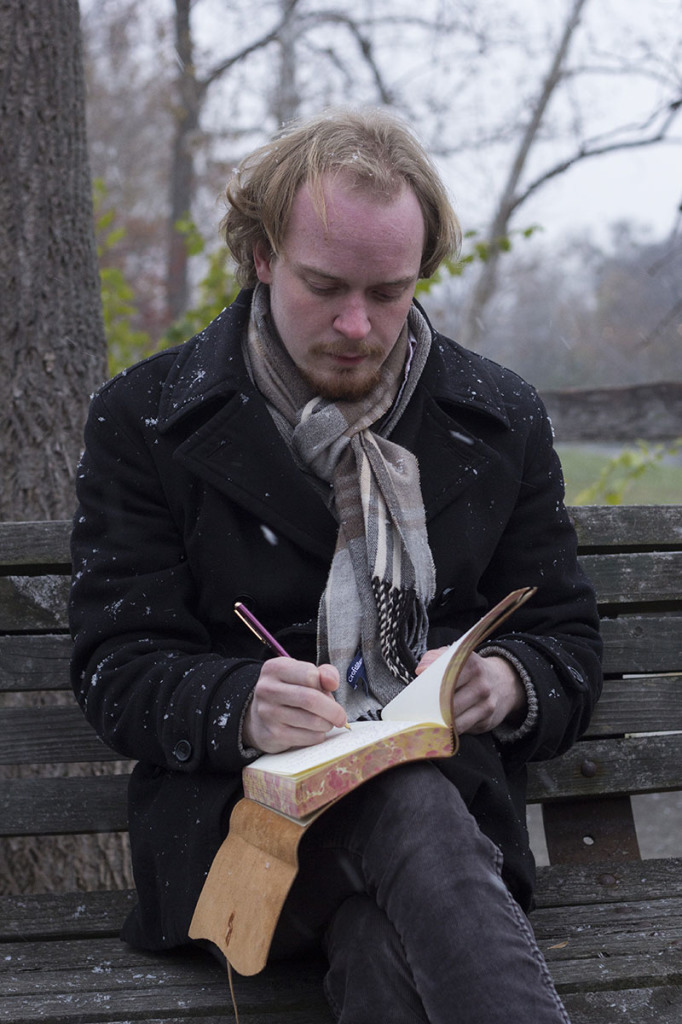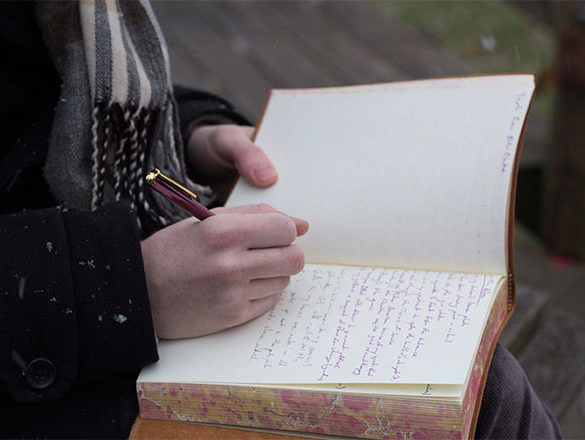Wanting to close the gap between artist and teacher, Blake Mellencamp blends both together in a form of poetry.

As Blake Mellencamp leads his Writers’ community meeting, the air is completely relaxed and humorous, like friends hanging out. The small group of students tosses around a few ideas from a writing prompt he has just handed out, exploring creative writing styles. After a few people have shared, he reads his own prompt, which gets the whole room laughing. He looks around with an easy grin on his face.
Mellencamp, a Ball State English education major, is a poet, a musician and a general advocate of art. He participates in several artistic communities in the Muncie area like the writer’s community. The bulk of his free time outside of school and his part-time job at the Indiana Academy is spent doing creative writing.
Stylistically, Mellencamp’s writing gravitates less toward strict prose to a more abstract form, thematically and conventionally.
“For a long time, I tried to be big and artistic and edgy, and I just wanted to be like T.S. Eliot and have all these big, fancy allusions,” he said. “But I realized eventually that that’s not me.”
Mellencamp draws influence from the satirical giants of the ’70s. This includes Frank Zappa, Jonathan Richman and Jens Lekman, who he said inspire him to develop a poetic voice that uses humor and word textures to create a distinct feeling.
Being a musician himself, he said that a lot of his poetry is lyrically focused, and musicians make up the better part of his taste in literature.
“The style I’ve found now is more social commentary about whatever issue I’m feeling that day,” Mellencamp said. “I like to play a lot when I write. I don’t like to take any of my art too seriously. I like to have fun with it.”
Despite his prolific body of creative work, Mellencamp thinks of himself as a teacher before an artist.
“It’s not one of those cliché things where [I say,] ‘No, I dream of being the next great American writer, but I didn’t think I could get a job,’” he said. “I just really care more about the art of education. I think that could be done better.”
After the Writers’ Community finishes critiquing one another’s work and the meeting begins to wind down, Mellencamp makes a proclamation that this is the final meeting and that the community is “no more!” This provokes further laughs around the room. He ends every meeting this way.
Click to hear Mellencamp recite an original poem.




